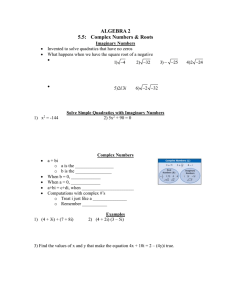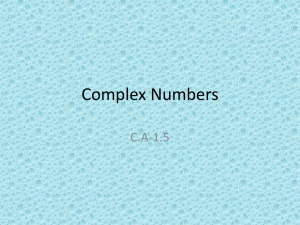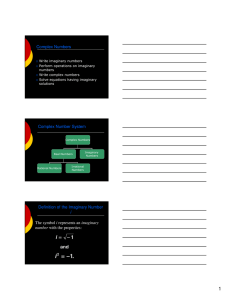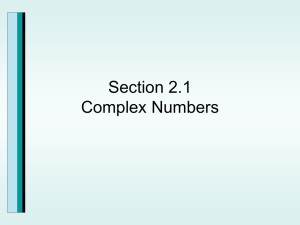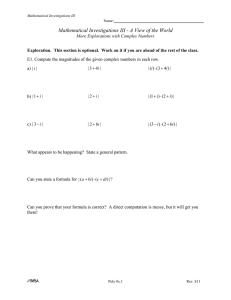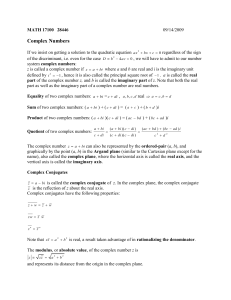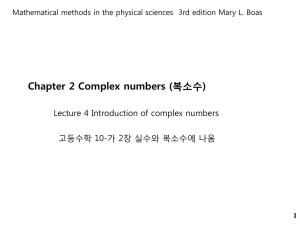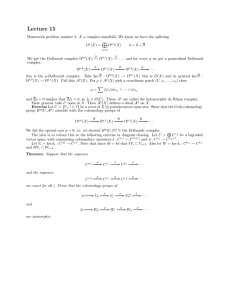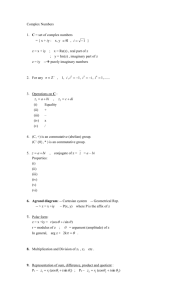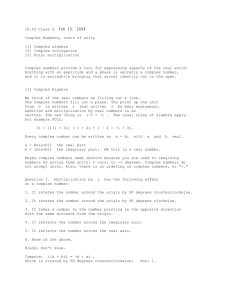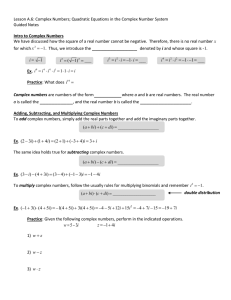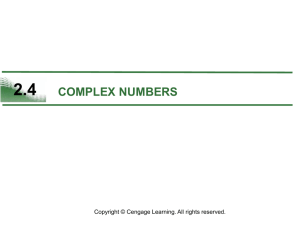ALGEBRA 2 5.5: Complex Numbers & Roots
advertisement
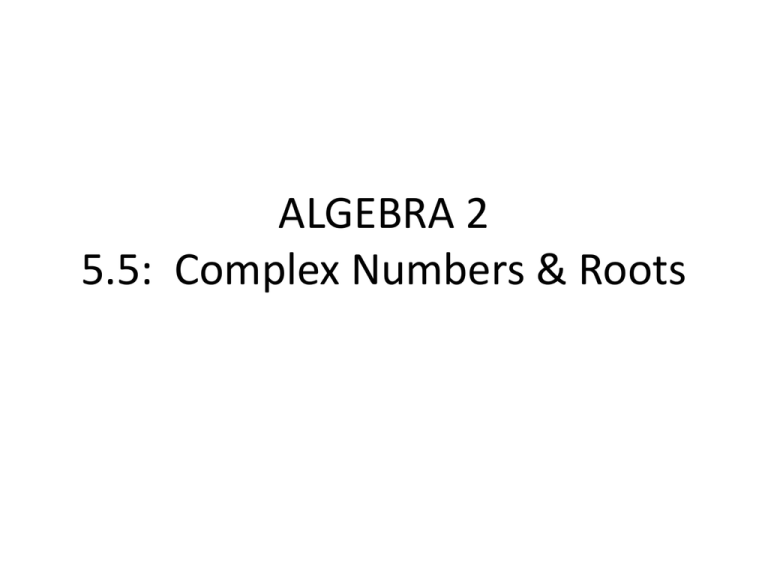
ALGEBRA 2 5.5: Complex Numbers & Roots Imaginary Numbers • Invented to solve quadratics that have no zeros • What happens when we have the square root of a negative – i – 1 i 1 2 1) 4 2) 32 5)2i 3i 3) 25 6) 2 32 4)2 24 Solve Simple Quadratics with Imaginary Numbers 1) x2 = -144 2) 5x2 + 90 = 0 Complex Numbers • a + bi – a is the real part – b is the imaginary part • • • • When b = 0, _____________ When a = 0, _____________ a+bi = c+di, when a =c and b=d Computations with complex #’s – Treat i just like a variable – Remember i2 = -1 Examples 1) (4 + 3i) + (7 + 8i) 2) (4 + 2i) (3 – 5i) 3) Find the values of x and y that make the equation 4x + 10i = 2 – (4y)i true. Find complex zeros using complete the square. 1) f(x) = x2 + 10x + 26 2) g(x) = 3x2 + 12x + 36 Complex Conjugates • Real parts are the same and the imaginary parts are opposites • (a + bi) & (a – bi) • This is what occurs when the roots are complex (previous slide) • Example: Find each complex conjugate 1) 8 + 5i 2) 6i Assignment #5 • Page 353 #’s 18-36,(96)
